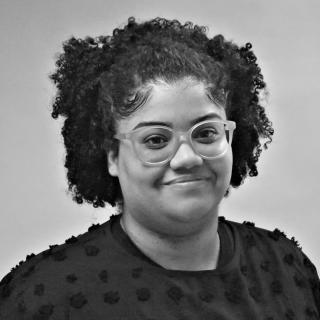
Florida book-banning saga continues
Maria Vazquez, Superintendent of Orange County Public Schools in Florida, shares the anxiety of educators.
Education has faced many challenges in recent years; political polarization in academia has become a common trend, with Florida headlines pouring in almost daily— with “woke” education agendas at the forefront of most of the information available to the public propagating “ideological rhetoric.”
In an interview with AL DÍA, Maria Vazquez, Superintendent of Orange County Public Schools (OCPS) in Florida, shares the book-banning process, its impact, and the anxiety of educators with ensuring compliance.
Social studies material controversy
The Florida Department of Education made a bold move last week by rejecting 35% of social studies textbooks submitted by publishers; in the initial review, only 19 out of 101 were approved “due to inaccurate material, error and other information that was not aligned with Florida Law,” and has also worked directly with publishers “who have updated their materials to comply with Florida’s rigorous standards.”
Gov. Ron DeSantis has made efforts to restrict the materials taught in schools— HB 1467, a law that led to the removal of classroom books in public school districts to ensure they are free of certain race-based teachings and pornography—set in motion book banning of critical race theory, ethnic studies, and most recently the censorship of the contents present in social studies materials.
A report by New York Times said one publisher omitted race in telling Rosa Parks' story in a social studies book for Florida’s first graders.
Based on the Florida Department of Education, the examples of rejected material referencing social justice, taking a knee, and other contents of ‘concern’ do not align with Florida Law.
Another reason for the rejection of some of the material referenced was “politically charged language when referencing the Hebrew Bible,” “unsolicited topics,” or “not age appropriate.”
“To uphold our exceptional standards, we must ensure our students and teachers have the highest quality materials available – materials that focus on historical facts and are free from inaccuracies or ideological rhetoric,” said Commissioner of Educations Manny Diaz, Jr. in a press release.
OCPS book ban
OCPS — the eighth largest school district in the country — has banned four books at the district level, with a fifth prohibited at the school level, which means the school’s Instructional Review Committee makes the decision to remove the book from its library. The books banned are Gender Queer, This Book is Gay, Let’s Talk About It, It’s Perfectly Normal: Changing Bodies, Growing Up, Sex, Gender and Sexual Health, and Shut Up!.
OCPS has a student population of 209,069, of which 44% are Hispanic students. Vazquez, meanwhile, stands out as the district's first Hispanic superintendent and the daughter of Cuban immigrants.
“We want our parents engaged in their child’s education,” said Vazquez. “I think where people are concerned, and I am too, is when decisions are made that impact all children... that may not be everyone's belief. And that is where we go with our mantra of ‘teaching the standard.’”
RELATED CONTENT
According to a report released by PEN America last year, of books banned between July 2021 and June 2022, 41% explicitly address LGBTQ+ themes, protagonists, or prominent secondary characters, 40% contain protagonists or secondary characters of color, 21% directly address race and racism, and 22% had sexual content.
“We believe that based on the law, they are not supposed to be on our shelves,” said Vazquez, who admits “there is a lot of anxiety with our teachers around what can be in their library, classroom libraries, media centers, and it would be helpful if the state had a list.”
She notes if the districts provided a comprehensive list of books reviewed and found that “they do not belong,” there “might be more consistency, and there might be less fear and anxiety around what instructional materials to use.”
“Out a child”
Amendment to the “Parental Rights in Education” bill or as infamously known as the ‘Don’t Say Gay’ bill requires schools to notify a “student’s parent if there is a change in the student services or monitoring related to the student mental, emotional, or physical health or well-being.” The school must inform the child’s parent within six weeks of learning the student's sexual orientation.
The Trevor Projects’ 2022 National Survey on LGBTQ Youth Mental Health surveyed nearly 34,000 LGBTQ youth ages 13 to 24 across the United States, with 45% of respondents being people of color and 48% being transgender or non-binary. The survey reveals 45% of LGBTQ youth considered committing suicide in 2021, and nearly 1 in 5 transgender and non-binary youth attempted suicide—with LGBTQ youth of color reporting higher rates than their white peers.
Vazquez is concerned that for families that were not supportive of their child's sexual orientation, “schools were the place where they could have those conversations.”
Melanie Willingham-Jaggers, Executive Director of GLSEN, an organization that advocates for the rights of LGBTQ+ students, condemns this rhetoric stating, “LGBTQ+ youth in Florida have faced relentless attacks from extremist politicians intent on silencing, excluding, and erasing them. Based on more than 20 years of research conducted by GLSEN, LGBTQ+ youth who attend schools with inclusive curriculum have higher GPAs, a greater sense of belonging, are more likely to pursue post-secondary education, along with many other benefits that promote long-term wellbeing and achievement. We stand in solidarity with LGBTQ+ youth and supportive parents and educators in Florida, and we’re never going to stop fighting for safe, inclusive, and affirming learning environments for all students.”











LEAVE A COMMENT:
Join the discussion! Leave a comment.